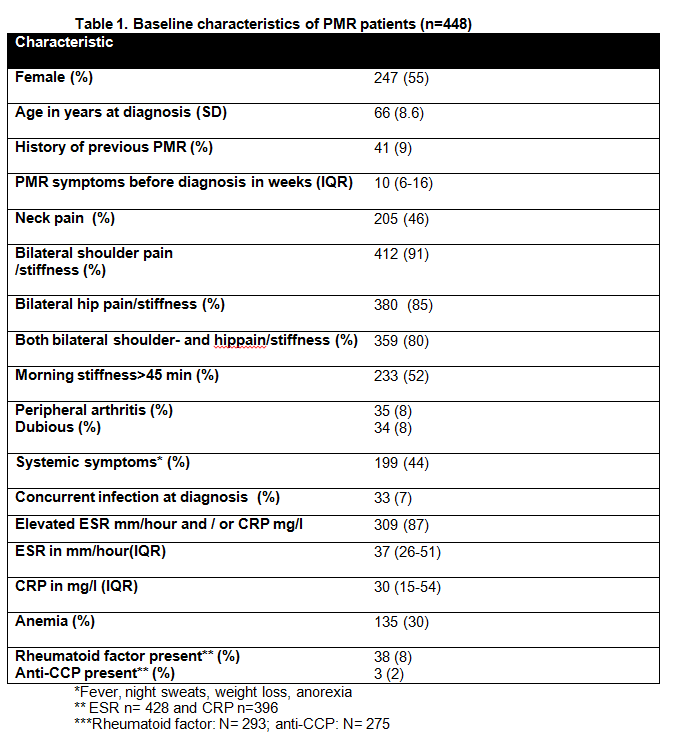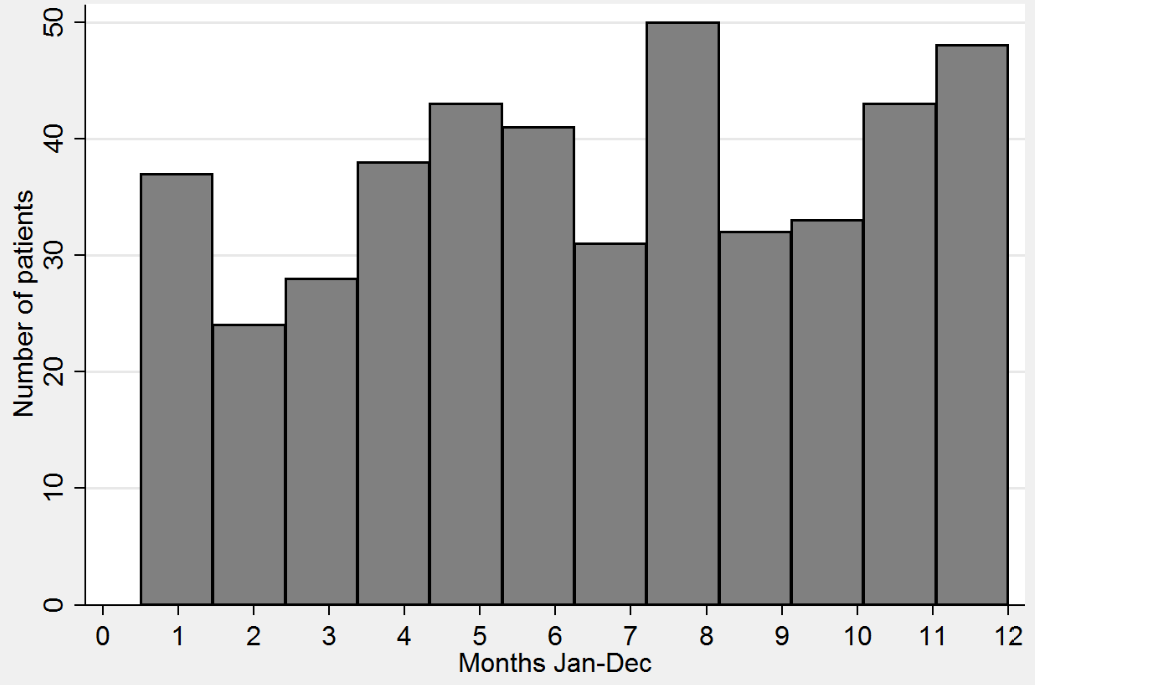Session Information
Session Type: Poster Session (Sunday)
Session Time: 9:00AM-11:00AM
Background/Purpose: The cause for polymyalgia rheumatic (PMR) is currently unknown. Disease onset may be triggered by a combination of genetic predisposition and environmental factors such as infection.1 In different regions of Denmark a simultaneous peak incidence of giant cell arthritis and PMR occurred together with epidemics of Mycoplasma pneumoniae, Chlamydophila pneumoniae and Parvovirus B19.1 A seasonal epidemics pattern for PMR would be supporting evidence for an infectious cause.1 However, the current evidence of seasonal effect on the occurrence and disease severity of PMR is limited and show conflicting results.2,3 We therefore aim to evaluate whether there is a seasonal effect on the risk of developing PMR in the Netherlands.
Methods: We retrospectively collected data on patient-, disease,- and treatment characteristics from newly diagnosed PMR patients (clinical diagnosis) who visited our outpatient clinic during April 2012 and September 2017. Exclusion criteria was other concomitant inflammatory rheumatic disease. Based on the onset of PMR (start symptoms, not time of diagnosis) patients were grouped per month. Descriptive statistics were used [mean (SD), median (p25-p75) or n (%) as appropriate]. The Chi square goodness of fit test was used to determine whether the incidence of onset of symptoms was different between months of the year.
Results: In total 448 patients were included and 55 % were female and mean age was 66 years. Other baseline characteristics are described in table 1. The chi-square goodness of fit test to determine whether there was a peak incidence in months was p=0.06. As shown in figure 1 the incidence of onset PMR symptoms is higher in December-January, April through June with a peak in August. The April-June peaks coincides with incidence peaks of Mycoplasma pneumoniae infections and possibly Parvovirus B19 in spring and summer, The December-January peak coincides with Parvovirus B19 infections.4,5
Conclusion: No definitive seasonal effect was found on risk of developing PMR, although a bimodal seasonal pattern compatible with the proposed respiratory infections is suggested.
To cite this abstract in AMA style:
Marsman D, van der Maas A, den Broeder A, van den Hoogen F, den Broeder N, Boers N. Polymyalgia Rheumatica: Winter Is Coming [abstract]. Arthritis Rheumatol. 2019; 71 (suppl 10). https://acrabstracts.org/abstract/polymyalgia-rheumatica-winter-is-coming/. Accessed .« Back to 2019 ACR/ARP Annual Meeting
ACR Meeting Abstracts - https://acrabstracts.org/abstract/polymyalgia-rheumatica-winter-is-coming/


